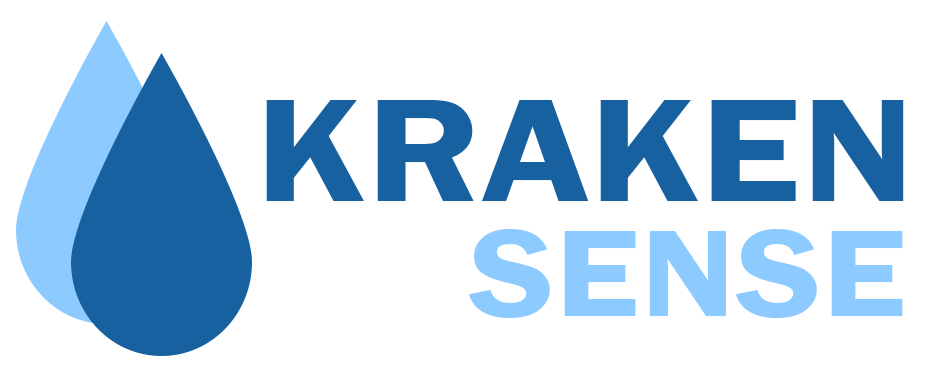
Cleaner Waters: The EU's Revised Urban Wastewater Treatment Directive (UWWTD)
The Urban Waste Water Treatment Directive (UWWTD) is a directive set by the European Union (EU) encompassing the collection, treatment, and discharge of urban wastewater, alongside wastewater from select industrial sectors. In a stride towards safeguarding water quality and environmental health, the UWWTD is currently being updated to address previous shortcomings and contemporary societal needs, and to extend its reach for a more comprehensive protection of water resources.

The Benefits of Customized Pathogen Detection Systems for Food Quality Control
Ensuring food safety is a paramount concern for everyone, from farmers and producers to retailers and consumers. However, traditional methods of pathogen detection in the food industry have their limitations. Customized pathogen detection systems are a game-changer in food quality control, offering faster and more accurate solutions for identifying and mitigating pathogenic risks.

World Day of Social Justice
The World Day of Social Justice, observed annually on February 20th, serves as a powerful reminder of the global commitment to fostering equality, justice, and fairness for all. Established by the United Nations in 2007, this day encourages individuals, communities, and nations to reflect on the importance of social justice in creating a world where every person can live with dignity and respect.

Sawyer Bovingdon: Waterloo Mechatronics Engineering Co-Op at Kraken Sense
Sawyer, a Mechanical Engineering student at Waterloo, shares his experience working for Kraken Sense as a Mechatronics Intern.

Seafood Safety: Pathogen Detection in the Seafood Industry
Millions of people rely on seafood as a primary source of protein. However, seafood is responsible for a significant proportion of foodborne illnesses and outbreaks each year. Chemicals, metals, marine toxins, and infectious agents have been found in seafood, including bacteria, viruses, and parasites causing symptoms that range from mild stomach irritation to life-threatening illnesses.

Viable But Non-Culturable (VBNC) Bacteria: Threats and Solutions
Viable but non-culturable (VBNC) bacteria are exactly what they sound like — bacteria that are viable and capable of causing infections, but that defy our conventional culturing techniques, posing significant challenges for researchers and public health professionals.

Nurturing Minds, Sustaining Futures: International Day of Education
The International Day of Education is celebrated annually on January 24th to recognize the pivotal role education plays in shaping a sustainable future. It emphasizes the need to ensure that all people, regardless of their background or circumstances, have access to quality education throughout their lives.

What is the purpose of pasteurization?
Pasteurization is a heat treatment process aimed at reducing pathogenic microorganisms present in food and beverages. Developed by the French microbiologist Louis Pasteur in the 19th century, pasteurization has become a cornerstone in ensuring the safety of various beverages and foods.

The Inflation Struggle: How Lab Services Bear the Brunt
The rising tide of inflation is taking a toll on lab services, affecting everything from the cost of supplies to labor expenses.

Harnessing Innovation: International Day of Epidemic Preparedness and the Role of Wastewater Surveillance
As we approach the 4-year mark of the beginning of the COVID-19 pandemic, the world reflects on the profound impact this unprecedented crisis has had on global health, economies, and everyday life. On this International Day of Epidemic Preparedness, observed annually on December 27th, we not only commemorate the progress we’ve made since the onset of COVID-19 but also spotlight innovative approaches that have emerged in the ongoing battle against infectious diseases.

Embarking on a Year of Innovation: Kraken Sense's Journey Through 2023
Dive into our transformative advancements, from pioneering the innovative Kraken device to revolutionizing pathogen detection methodologies. Discover how our strides in biotech have reshaped the landscape of chemical testing, offering unparalleled insights into pathogen monitoring.

Crossing Species: Detecting Zoonotic Pathogens
From the bubonic plague to the recent COVID-19 outbreak, zoonotic pathogens pose a significant threat to global health and demand our attention.

Celebrating Human Rights Day: A Reflection on Water Quality
Every year, Human Rights Day is celebrated on December 10th to commemorate the universal rights and freedoms to which all individuals are entitled. Access to clean water is critical to health, education, and economic opportunities, making it paramount to ensure water security for all.

Stagnant Water: The Hidden Dangers of Opportunistic Premise Plumbing Pathogens (OPPPs)
Opportunistic Premise Plumbing Pathogens (OPPPs) are microorganisms that thrive in building plumbing systems. Stagnant water can provide an ideal environment for the growth and proliferation of these pathogens, leading to potential health hazards for building occupants.

The Power of Data: Using Analytics for Water Quality Monitoring and Surveillance
Real-time monitoring, early detection of issues, predictive modeling, and the integration of big data and IoT are revolutionizing the way we approach water resource management.

A Call for Clean Water: Battling Diarrheal Diseases on World Children's Day
Millions of children worldwide suffer from diarrheal illnesses caused by consuming contaminated water or food. On this World Children's Day, let us shed light on this critical issue and explore the ways we can collectively work towards a healthier future for our children.

Real-Time Pathogen Monitoring: Revolutionizing Pharmaceutical Bioprocessing
Pharmaceutical bioprocessing uses living cells or microorganisms to produce medications. Bioreactors are highly susceptible to bacterial contamination, creating a need for real-time pathogen detection to prevent massive product loss and manufacturing delay.

Protecting the Aquatic Farm: The Growing Need for Real-Time Pathogen Monitoring
Pathogen outbreaks pose a serious threat to the productivity and profitability of aquatic farms, creating a need for real-time pathogen detection to mitigate potential contamination.

Blood-Borne Threats: Pathogen Detection in Blood Samples
Blood-borne pathogens can cause a range of diseases, including HIV, hepatitis B and C, malaria, and many others. Timely and accurate detection of these pathogens is crucial for effective disease management and prevention.

Pathogen Monitoring in Agriculture: Ensuring Safe Irrigation Water
Pathogen contamination in agricultural water sources poses a significant risk to crop safety and human health. By implementing effective pathogen detection techniques, farmers can proactively address the issue of waterborne pathogens and safeguard both crop productivity and public health.
